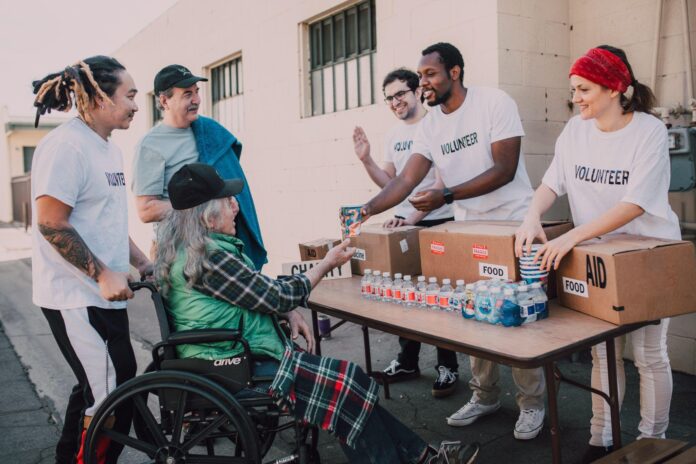The changing dynamics of the modern world paved the way for the scope of social work in a wide-ranging setting.
Social workers contribute their role in bringing change and improving the situation in healthcare, education, etc.
They provide assistance to cope with inequality, social injustice, and climate change depending on their interest, education, specialization, and fieldwork.
By acting as advocates of rights and problem solvers, they help communities improve their living standards. Their work is not limited to individuals; they allow organizations to incorporate social responsibility and develop and implement policies accordingly. Several government agencies also look for social workers to engage and mobilize communities.
What do you need to become a social worker? Of course, like any other profession, there are some requirements like education, skills, aptitude, professional experience, etc.
With that said, let’s look at seven amazing career options for social workers in 2022.
- Mental Health Social Worker
Mental health social workers are an integral part of a society in promoting overall well-being. The primary role of such social workers is to prevent, assess, diagnose, and treat emotional, mental, and behavioral issues.
They help patients deal with anxiety, depression, drug abuse, borderline personality disorder, etc. Mental health social workers act as counselors and therapists for treating mental health issues.
A Master’s in social work is an educational requirement for this career path. Other conditions may include various certifications such as Licensed Master Social Worker (LMSW), an Associate Clinical Social Worker (ACSW), etc.
In contrast, LMSW jobs are generally available in mental health settings, including clinics, drug abuse centers, and inpatient and outpatient facilities.
- Medical Social Worker
Medical social workers work in various medical setups, including hospitals, clinics, and other healthcare centers.
They assist patients in getting healthcare facilities while coordinating with medical teams. Their support is not limited to medical care only; they help patients cope with emotional distress in the recovery phase.
Patients’ families also rely on social workers to navigate the medical system and coordinate their concerns with the medical teams.
Patients need the services of medical social workers to get proper care in the form of treatment plans and healthcare services.
To become a medical social worker, a bachelor’s and a master’s degree in social work and other related disciplines are prerequisites.
- Marriage and Family Counselor
Marriage and family counseling careers enable social workers to promote healthy relationships and family bonds.
Marriage and family counselors deal with couples and families, discuss their issues, and provide them with the best possible solutions.
After becoming a marriage and family counselor, you can help life partners understand their interpersonal differences and reach an agreement. Similarly, you can counsel families dealing with challenges to improve the healthy family units.
Educational requirements for this career demand a master’s degree in social work and related disciplines with an additional need for clinical practice between 2,000 to 4,000 hours and a license.
- Child Welfare Social Worker
The role of child welfare social workers is to help children who face abuse, vulnerability, and behavioral dysfunction.
The primary focus of such workers is on child development and welfare. Child welfare social workers extend their support to children living in foster homes and similar settings.
They advocate children’s rights and play an essential role in their welfare activities such as education, protection against violence, and displacement issues.
Child welfare social workers provide counseling to children and their families. The job placement of such workers is usually at government agencies, non-profit organizations, and private organizations.
The minimum requirement to be a children’s welfare social worker is to earn a bachelor’s degree in social work.
Behavior Analyst
Behavior analysts contribute to building a healthy society by observing people’s behaviors and learning habits at an individual level.
The main goal of behavioral analysts is to improve people’s behavior by teaching them better techniques for socialization and coping with challenges to lead a satisfying life.
The expertise of certified behavior analysts also extends to special needs children and adults. They support autistic, ADHD, eating disorders, and anxiety patients to adjust and adapt to variable environments and routines. With their constant support, families of such people understand children and adults’ specific behavior and special needs.
The educational background of behavioral analysts is a graduate degree in social work, psychology, and other related disciplines. Moreover, professional work experience and certification are also compulsory.
- School Social Worker
School social workers assist children in maintaining healthy behavior and overcoming mental health challenges.
These may include pressure to maintain good academic performance, bullying, and adjusting to a new environment. School social workers also have teachers and families in the crisis intervention to identify the factors that trigger the children’s mental health issues.
Furthermore, they develop a comprehensive treatment plan considering all the stakeholders. All public and private schools, from preschool to high school level, recruit the services of school social workers to promote a healthy educational environment.
School social workers require a bachelor’s and master’s degree in social work or equivalent qualification. Certification or license is also mandatory to practice as a school social worker.
- Military Social Worker
Military social workers primarily focus on the mental health of the active and former military personnel. Depending on the nature of the job, military staff, including serving and retired armed, naval and air forces, and national coast guards, can face psychological traumas and emotional challenges.
These may include anxiety, insomnia, depression, PTSD, etc. In addition, they are more likely to suffer from isolation, marital conflicts, substance abuse, and financial hardships.
Military social workers help military staff address mental health issues by developing programs focusing on raising awareness and treatment at the individual or family level.
The general requirement to become a military social worker is to obtain a bachelor’s or master’s degree with relevant certification or license.
Conclusion
A degree in social work allows graduates to spread their knowledge and practice their skills in various sectors.
However, they must research information about relevant certifications and licensure in their residential states to become certified social workers.
The requirements for certifications and licenses may vary in each state. They can play a vital role in raising awareness about key social issues and leading a change in the system.
As educators and supervisors, social workers can motivate the new generation to contribute to uplifting society.


















